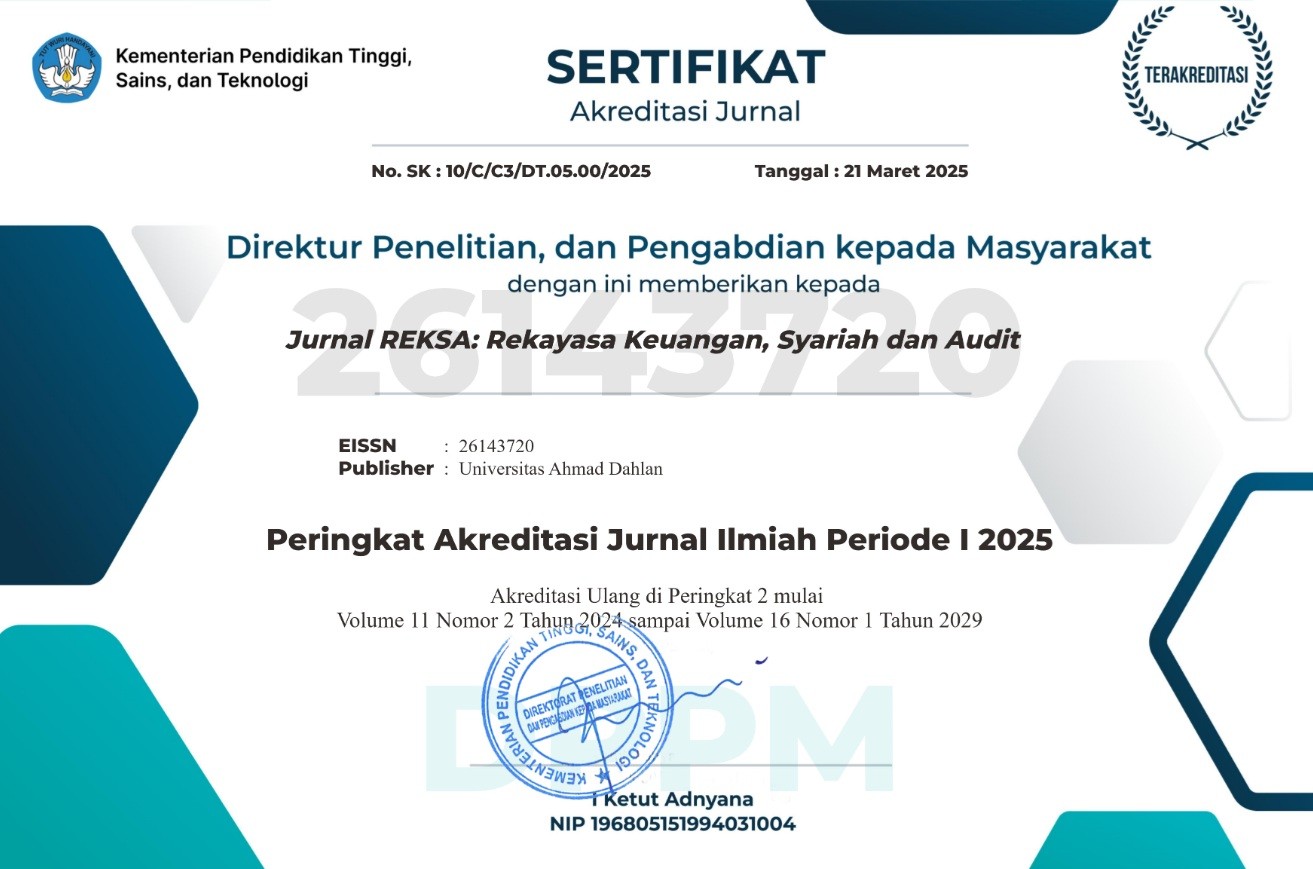PERSEPSI MAHASISWA AKUNTANSI TERHADAP ETIKA PENYUSUNAN LAPORAN KEUANGAN SYARI’AH SESUAI PSAK No. 101
DOI:
https://doi.org/10.12928/j.reksa.v2i2.12Keywords:
student perceptions of accounting, the financial statements ethics Shari'ah.Abstract
This research to determine differences in accounting students perceptions of the ethics financial shari’ah statement in accordance with SFAS No. 101. The analysis was based on respondents answers were obtained through questionnaires distributed at Private Colleges and Universities Public Islam. Population of this study is that accounting students are in Private Colleges and Universities Public Islam. This study uses purposive sampling method. Samples were taken from six semesters of accounting students and eight who have taken courses Accounting Theory. To test the validity of the data used Pearson correlation, to test the reliability of the data used Cronbach Alpha while the data used to test the normality Kolmogorov-Smirnov, and the data used to test for differences Independent samples t-test. The results are hypothesis 1, hypothesis 2, hypothesis 4, and 5 are acceptable hypothesis that there are differences in the perception of earnings management, misstatements in the financial statements, cost-benefit, and responsibility to the users of financial statements Shariah between accounting students at university Private Higher Islam and Higher Education General. And hypothesis 3 was rejected, ie there is no difference between the perceptions of disclosure of accounting students in Private Colleges and Universities Public Islam.Downloads
Published
2018-06-09
How to Cite
Siregar, W., & Hidayah, K. (2018). PERSEPSI MAHASISWA AKUNTANSI TERHADAP ETIKA PENYUSUNAN LAPORAN KEUANGAN SYARI’AH SESUAI PSAK No. 101. Jurnal REKSA: Rekayasa Keuangan, Syariah Dan Audit, 2(2), 104–119. https://doi.org/10.12928/j.reksa.v2i2.12
Issue
Section
Articles
License
Authors who publish with JURNAL REKSA agree to the following terms:
- Authors retain copyright and grant the JURNAL REKSA right of first publication with the work simultaneously licensed under a Creative Commons Attribution License (CC BY-SA 4.0) that allows others to share (copy and redistribute the material in any medium or format) and adapt (remix, transform, and build upon the material) the work for any purpose, even commercially with an acknowledgment of the work's authorship and initial publication in JURNAL REKSA.
- Authors are able to enter into separate, additional contractual arrangements for the non-exclusive distribution of the journal's published version of the work (e.g., post it to an institutional repository or publish it in a book), with an acknowledgment of its initial publication in JURNAL REKSA.
- Authors are permitted and encouraged to post their work online (e.g., in institutional repositories or on their website) prior to and during the submission process, as it can lead to productive exchanges, as well as earlier and greater citation of published work (See The Effect of Open Access).




